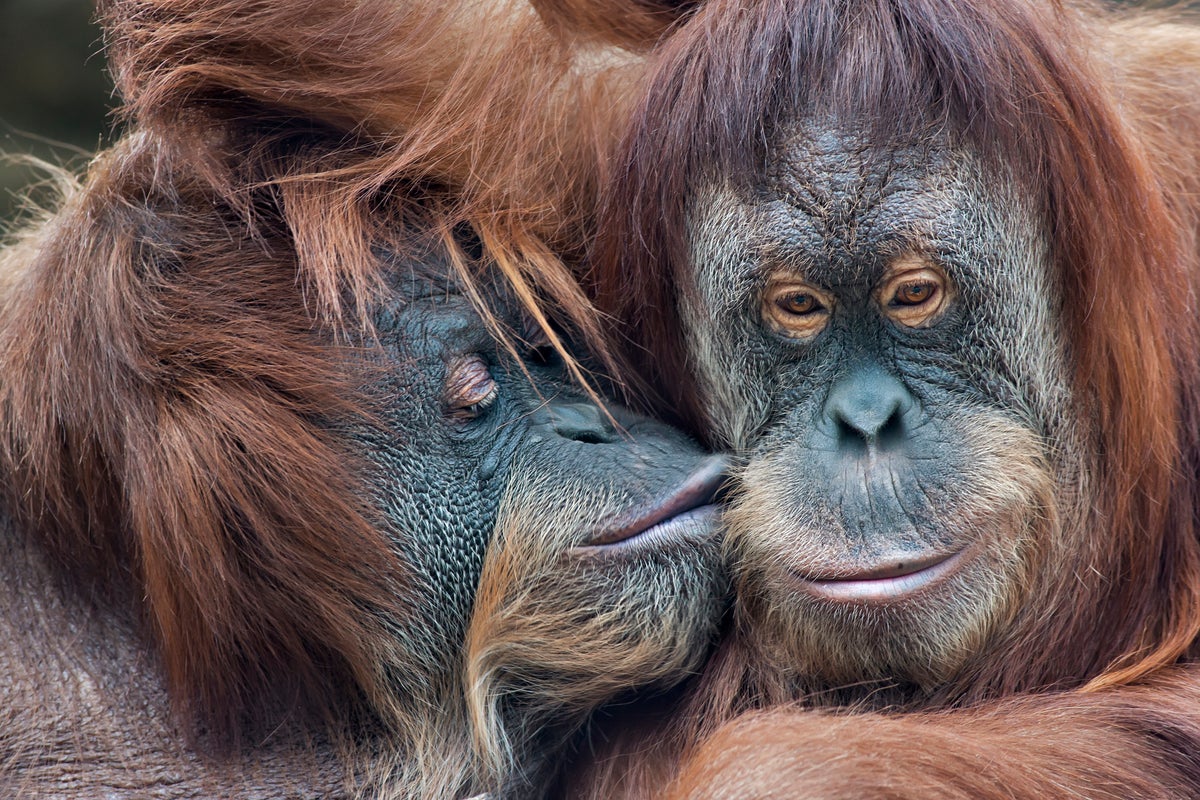Science
Study Reveals First Human Kiss Dates Back 21 Million Years

Research conducted by the University of Oxford indicates that the first human kiss may have occurred as far back as 21 million years ago. This study suggests that early interactions between our ape ancestors and Neanderthals included not just mating but also affectionate behaviors such as kissing. While it has long been established that Homo sapiens and Neanderthals interbred, this new research points to a more complex social relationship than previously understood.
Kissing is seen in various animal species, but its evolutionary purpose has puzzled scientists. It is a behavior that can facilitate the spread of disease without providing clear reproductive or survival advantages. The Oxford-led study, published in the journal Evolution and Human Behaviour, marks the first comprehensive effort to analyze the evolutionary history of kissing through the lens of the primate family tree.
Dr. Matilda Brindle, the lead author and an evolutionary biologist at Oxford’s Department of Biology, stated, “This is the first time anyone has taken a broad evolutionary lens to examine kissing. Our findings add to a growing body of work highlighting the remarkable diversity of sexual behaviors exhibited by our primate cousins.”
Kissing may have been a common practice among early humans and Neanderthals, who cohabited Europe for a span of 2,600 to 5,400 years until the latter’s extinction around 40,000 years ago. Prior studies suggested that modern humans shared oral microbes with Neanderthals, indicating potential saliva transfer through interactions such as food sharing or chewing. This latest research proposes that these interactions extended to kissing.
The study defined kissing as non-aggressive, mouth-to-mouth contact that did not involve food transfer. It included various primates, such as chimpanzees, bonobos, and orangutans, which have all been observed engaging in kissing behaviors. The researchers treated kissing as an evolutionary trait, mapping it onto the primate family tree and running complex models to estimate the probability of kissing behaviors among different extinct ancestors. This involved simulating the model 10 million times to achieve accurate estimates.
Co-author Professor Stuart West emphasized the significance of integrating evolutionary biology with behavioral data. “By integrating evolutionary biology with behavioral data, we’re able to make informed inferences about traits that don’t fossilize – like kissing. This lets us study social behavior in both modern and extinct species,” he explained.
While the study offers insights into how kissing may have evolved, the researchers caution that it does not clarify the reasons why animals engage in kissing. They suggest that kissing might have originated from grooming behaviors or mothers feeding their young. Nonetheless, understanding the evolution of kissing adds a fascinating dimension to our comprehension of social interactions in both contemporary and ancient species.
This groundbreaking research opens the door for further exploration into the complexities of human behavior and its roots in our evolutionary history.
-

 Health3 months ago
Health3 months agoNeurologist Warns Excessive Use of Supplements Can Harm Brain
-

 Health3 months ago
Health3 months agoFiona Phillips’ Husband Shares Heartfelt Update on Her Alzheimer’s Journey
-

 Science1 month ago
Science1 month agoBrian Cox Addresses Claims of Alien Probe in 3I/ATLAS Discovery
-

 Science1 month ago
Science1 month agoNASA Investigates Unusual Comet 3I/ATLAS; New Findings Emerge
-

 Science4 weeks ago
Science4 weeks agoScientists Examine 3I/ATLAS: Alien Artifact or Cosmic Oddity?
-

 Entertainment4 months ago
Entertainment4 months agoKerry Katona Discusses Future Baby Plans and Brian McFadden’s Wedding
-

 Science4 weeks ago
Science4 weeks agoNASA Investigates Speedy Object 3I/ATLAS, Sparking Speculation
-

 Entertainment4 months ago
Entertainment4 months agoEmmerdale Faces Tension as Dylan and April’s Lives Hang in the Balance
-

 World3 months ago
World3 months agoCole Palmer’s Cryptic Message to Kobbie Mainoo Following Loan Talks
-

 Science4 weeks ago
Science4 weeks agoNASA Scientists Explore Origins of 3I/ATLAS, a Fast-Moving Visitor
-

 Entertainment4 months ago
Entertainment4 months agoLove Island Star Toni Laite’s Mother Expresses Disappointment Over Coupling Decision
-

 Entertainment3 months ago
Entertainment3 months agoMajor Cast Changes at Coronation Street: Exits and Returns in 2025









